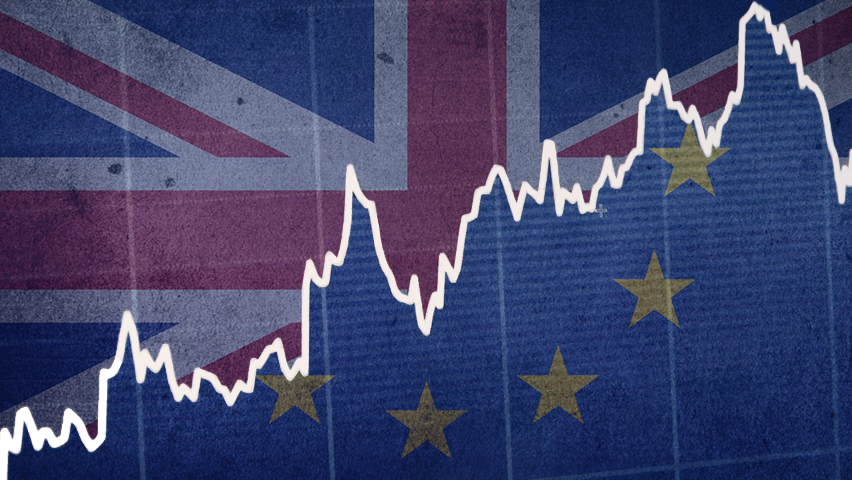
By Kiran Trehan, Professor of Leadership and Enterprise Development
Birmingham Business School, University of Birmingham
A deal or no-deal Brexit continues to dominate the headlines; however, what impact is the uncertainty of how we leave the EU having on businesses. There are still many unanswered questions particularly for small and medium-sized enterprises (SMEs), whose resilience is being tested as they feel the disruptive force of Brexit.
The fragility of many of these businesses is forcing them to throw caution to the wind as they grasp every growth opportunity available, which has become even more urgent in the current difficult economic climate. Every SME is different, with its own markets, products, growth potential, and with different elements of skills, experience, networks, gender and ethnicity, depending on the entrepreneur(s) who drive it. Diversity is, therefore, a feature of any business community. Yet, too often support to business growth ignores many aspects of diversity, applying a ‘one size fits all’ policy which results in opportunities being lost through an inability to engage many of the businesses that could benefit.
Grasping the Nettle
As we move closer to Britain’s departure from the EU, we explore how inclusive leadership supports economic and business growth. SMEs will continue to have a significant role to play in economic growth after Brexit. There is an understanding amongst policy makers and practitioners of the significant role leadership diversity within businesses plays, for example, if the country is to fully take the opportunities of growth and social improvement firms need to encouraged to operate in different sectors and have ethnic, gender and age diversity in their ownership.
Brexit has made converting these policy insights into effective actions and outcomes more challenging. However, Brexit whether a force for good or bad has provided a real spur to the imagination and innovation to some entrepreneurs to drive inclusive leadership, as they see Brexit as an opportunity to boost business survival and growth, by engaging with diverse communities. SME’s have made a huge contribution to the British economy over the past few decades, diverse businesses contribute at least £40 billion a year to the UK economy, a contribution that is continually increasing as they open up new national and international markets. In the UK, ethnic entrepreneurs create one in seven companies and are twice as entrepreneurial as the British-born working-age population (Centre for Entrepreneurs, 2014). Such businesses provide employment, particularly in deprived areas, and play a highly visible and dynamic leadership role in sustaining neighbourhoods and transforming the economic and social landscape of our cities.
Resilient Leadership
The lack of leadership and decision-making surrounding Brexit is continuing to have negative business repercussions. When it comes to competitive advantage our research makes it increasingly clear that organisations with diverse workforces perform better because they tend to attract diverse talent, have greater employee satisfaction and are better at problem-solving, decision making innovation, have higher financial returns and are resilient in uncertain times. For SMEs whilst it is difficult to second-guess the real financial impact of Brexit in terms of employment, finance, trade, and growth, it is clear that SMEs are flexible and can adapt to change and adopt new strategies, allowing them to improve their learning capability and surpass the competition. (Trehan and Glover, 2018, Taneja et al 2016). SMEs have innovative cultures with little resistance to change, low-risk aversion and a high tolerance for ambiguity. When resources and capabilities are combined, they effectively and efficiently drive organisational performance. Diversity is seen as a strategic business tool, which can enhance firm survival and success (Trehan et al, 2018, Sequeira et al., 2018) and both diversity and resilience are fundamental core aspects of micro and small firms, which enable them to deal with events such as Brexit.
Whilst there are many unknowns surrounding Brexit, SME’s have raised concerns over the financial implications for their businesses as well as being able to attract the right calibre of staff. Despite this, SMEs are well placed with their flexible business structures, diverse leadership, high levels of innovation, learning and resilience to be able to weather the Brexit storm. They have stood the test of time, whilst others have crashed and burned, these businesses have seen and endured economic crises, political tensions and many changes in the environments in which they operate. And, it is for these reasons that we should look to these firms as exemplars for the future of business leadership and resilience beyond Brexit.
References
- Migrant Entrepreneurs: building our Business Creating our jobs A report by Centre for Entrepreneurs and DueDil (2014)
- Sequeira, J. M., Weeks, K. P., Bell, M. P., & Gibbs, S. R. (2018). Making the case for diversity as a strategic business tool in small firm survival and success. Journal of Small Business Strategy, 28(3), 31-47.
- Trehan et al (2018) Leaders Like you Research report from the West Midlands combined authority’s leadership commission
- Trehan Glover (2018) Irresponsible or Responsible Leadership: Studying leadership in action in Rural Entrepreneurship Institute for Small Business and Entrepreneurship Research Policy and practise: collaboration in a disparate world
- Taneja, S., Golden Pryor, M., & Hayek, M. (2016). Leaping innovation barriers to small business longevity, Journal of Business Strategy, 37(3): 44-51.
- Find out more about Professor Kiran Trehan at the University of Birmingham
- Download the policy brief on “making diversity everyone’s business”
- Read how Kiran’s research is impacting the real lives of black and ethnic minority businesses
- Back to Business School Blog
